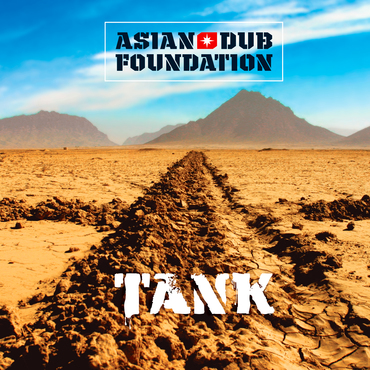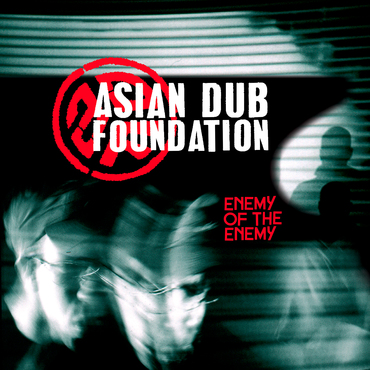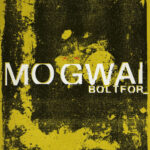Formed in 1993, South London’s Asian Dub Foundation hit the listener like a fully exploding molotov cocktail followed by a very hard slap. Music was all the better for it. An explosive mix of hip-hop, punk attitude, drum’n’bass, ragga and south Asian music, this was music that demanded the right to be heard and, most importantly, listened to. This also translated to incendiary live shows, which were every bit as good as legend has it and this writer wore his ADF T-shirt with pride. Their second and third albums – Rafi’s Revenge and Community Music made the UK album chart Top Twenty.
These two re-issues, 2003’s Enemy Of The Enemy and 2005’s Tank (the latter being issued on vinyl for the first time) are the next part of the story. Although the former did not reach the same chart heights in the UK, it sold 100,000 copies in France and became their biggest seller internationally. At this point in the band’s history, the line-up started to change, with rapper Deeder Zaman having left at the end of 2000. For Tank, they were joined by On-U Sound collaborator Ghetto Priest on vocals, with the help of Adrian Sherwood.
Enemy opens with the attack on European Immigration policy that is ‘Fortress Europe.’ Nearly twenty years later, this has not lost any of its punch, particularly in a world where displaced persons are still being treated with an inexcusable lack of humanity – it could have been written last week. Another standout track is ‘1000 Windows.’ Featuring the vocals of Sinead O’Connor, this song tackles the taboo of domestic violence, which the band note in the sleevenotes may see women jailed for taking matters into their own hands in their desperation to escape abusive relationships. The title track challenges the old adage of ‘The enemy of my enemy is my friend’ through the prism of 9/11: the enemy of your enemy is your friend until they’re not anymore – and the implications of this for those who may end up as collateral when this comes into play.
As the band released Enemy…, the second Gulf War was getting underway. As the title track asks “The wheels of the tank keep turning round and round/How many megatons will it take to make them turn around?”, and the lyrics were not getting any less compromising. ‘Round Up’ references Pastor Martin Niemöller, challenging listeners that even when the powers that be come for the liberals will they still say nothing? ‘OIL‘ is blunter still, attacking those who are dependent on the black gold.

Yet some of the most interesting bits of the album come at the end and a break from the 2-step that dominates much of the album. Tank shows a more reflective side of the group. A highlight is the reggae-led call to arms of ‘Tomorrow Begins Today.’ The six minute long instrumental ‘Melody 7’ is a dreamy piece that closes the original album.
Let’s dismiss the baggage of so-called world music. Both albums reflect a multicultural Britain and lyrically are more relevant than ever. ADF also serve as how the idea of a multi-cultural melting pot is not about being ‘worthy’ or ‘right on’ (or whatever facile cliché) but rather gives the opportunity for a shared dialogue and some truly thrilling genre-mixing of some of the most interesting ideas of the last few decades (and indeed further). This is not least because one of the results is absolutely fantastic tunes, across the albums, which really should be the aim of any such record. Both these albums stand strong on their own terms and also make fantastic companion pieces. While mainstream media in the UK may not have been giving them the coverage they had a few years previously, they were continuing to make brilliant albums with something to say. If you enjoyed earlier albums check these out. If you’ve never heard ADF before, these are not bad entry points for one of the most creative acts on these shores.
Both albums – 8/10




